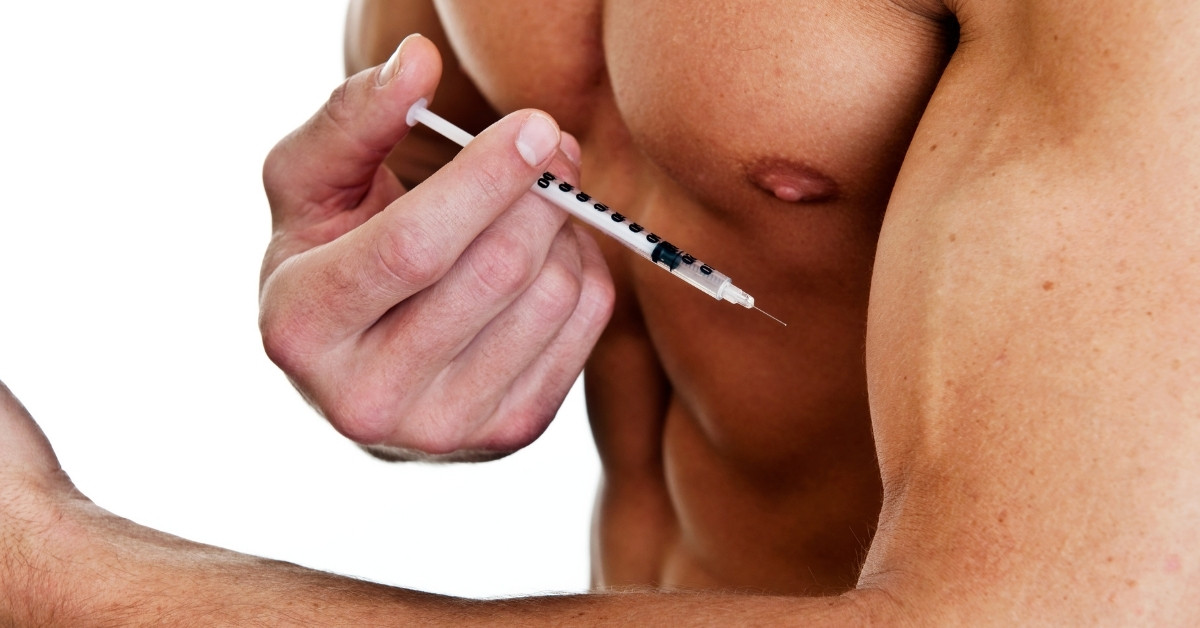Testosterone replacement therapy (often abbreviated to TRT for short) can be an excellent option for men suffering from low testosterone. TRT is delivered using prescription injections and gels and, like other prescription level medications, is best used under the watch of a physician. Since testosterone is a natural hormone that the body produces, some people mistakenly believe there are no risks to taking it as a supplement. But while the benefits are great if your testosterone levels are low, too much can be just as big a problem; therefore, testosterone should never be injected without the supervision of a physician. Here we will discuss some of the dangers of injecting testosterone without a TRT physician.
Heart Attacks
Some studies have suggested that prolonged use of TRT may increase the risk of heart attacks. Specifically, the studies indicated that older men (65+) and young men with histories of heart disease and those suffering from coronary heart disease could be at increased risk if they took TRT. However, more recent studies suggest that TRT may decrease the risk of heart attacks, although it isn’t clear if that is for the population overall or specifically at-risk groups. The link between heart attacks and TRT is still ambiguous, so it is best to work with your physician before taking TRT, especially if you have a history of heart problems.
Cancer
One common concern about using TRT is the rumored increase in prostate cancer. The idea is that the elevated PSA (prostate-specific antigen) and enlarged prostates that can result from using TRT could either trigger the development of prostate cancer or reawaken old cancer that was under control previously. Many more recent studies have shown this not to be the case and that men with a history of prostate cancer suffering from low testosterone don’t necessarily need to fear TRT. However, other sources have suggested that excessive amounts of testosterone in the bloodstream could increase cancer risk. It’s essential to have a physician test your blood to ensure you get the proper amount of testosterone and not get to levels that could pose a cancer risk.
Strokes
Although the exact cause is still being studied, TRT patients may have an increased risk of strokes. The risk was apparent enough for the FDA to require that the risk be included on the warning label of TRT. If you have had a stroke or have a family history, you should use TRT with caution and be monitored by your physician.
Sleep Apnea
Sleep apnea is a common sleep disorder, especially in older and overweight men. This disorder causes people to stop breathing during sleep briefly and disrupts healthy sleep patterns and testosterone production. Studies suggest that using TRT could potentially exacerbate certain kinds of sleep apnea. If you have been diagnosed or have a family history of sleep apnea, it may be good to ask your physician about doing a sleep panel before starting TRT.
Polycythemia
When using TRT, there is an increased risk of polycythemia, a condition where the body produces too many red blood cells. This elevated red blood cell level can worsen other conditions and is associated with worsening vascular and other diseases. For this reason, it’s recommended that people suffering from obstructive sleep apnea, congestive heart failure, and erythrocytosis (a genetic blood disorder) have these conditions treated and under control before trying out TRT.
Acne
While not as severe as some other side effects on this list, no one wants to deal with acne. Hormonal changes and high testosterone levels can trigger this embarrassing and painful skin problem, so by its nature, TRT can cause acne outbreaks as a side effect. There are medications and techniques to help those dealing with acne, so if you have sensitive skin or a history of bad acne, your physician can help you find a solution to dealing with both acne and low testosterone at the same time.
Infertility
The body is a complicated system, and while it may seem counter-intuitive, taking TRT could increase your risk of infertility. Healthy sperm production depends on the brain’s specific endocrine glands, the hypothalamus, and the pituitary gland. When using TRT, testosterone levels in the bloodstream can become artificially high and cause these glands to slow down in response to testosterone’s overproduction. However, when these glands slow down, the level of testosterone in the testicles (not the bloodstream) drops, leading to a reduced sperm count and possible sterility. If you are still trying to have children, it’s best to discuss with your physician how best to treat your low testosterone without unduly interfering with your endocrine system.
Conclusions
These dangerous side effects might frighten one away from using TRT. Most of them come with warning signs that are only detectable by a doctor (such as an increase in red blood cells) or are linked with specific comorbidities (such as existing cancer). It is critical to use TRT with a licensed physician’s guidance and continued support. You should never obtain TRT drugs illicitly or use them off-label without close monitoring.
TRT is unlikely to improve your strength, mood, or libido, despite common misconceptions, unless you are already deficient in testosterone, so there are no benefits to using it without a low testosterone diagnosis. A physician will be able to test testosterone levels to make sure you need it. Low testosterone can be easily misdiagnosed, as the main symptoms can also be symptoms of other conditions or unhealthy lifestyles. Testing will make sure it won’t interact with any other medications that you are taking and monitor your body’s response to avert any severe side effects. With careful use and help from a doctor, testosterone replacement therapy can help you deal with low testosterone and start feeling like your old self again.
Are you concerned with your testosterone levels or have questions about injectable steroids? Contact EVOLVE patient care today.







